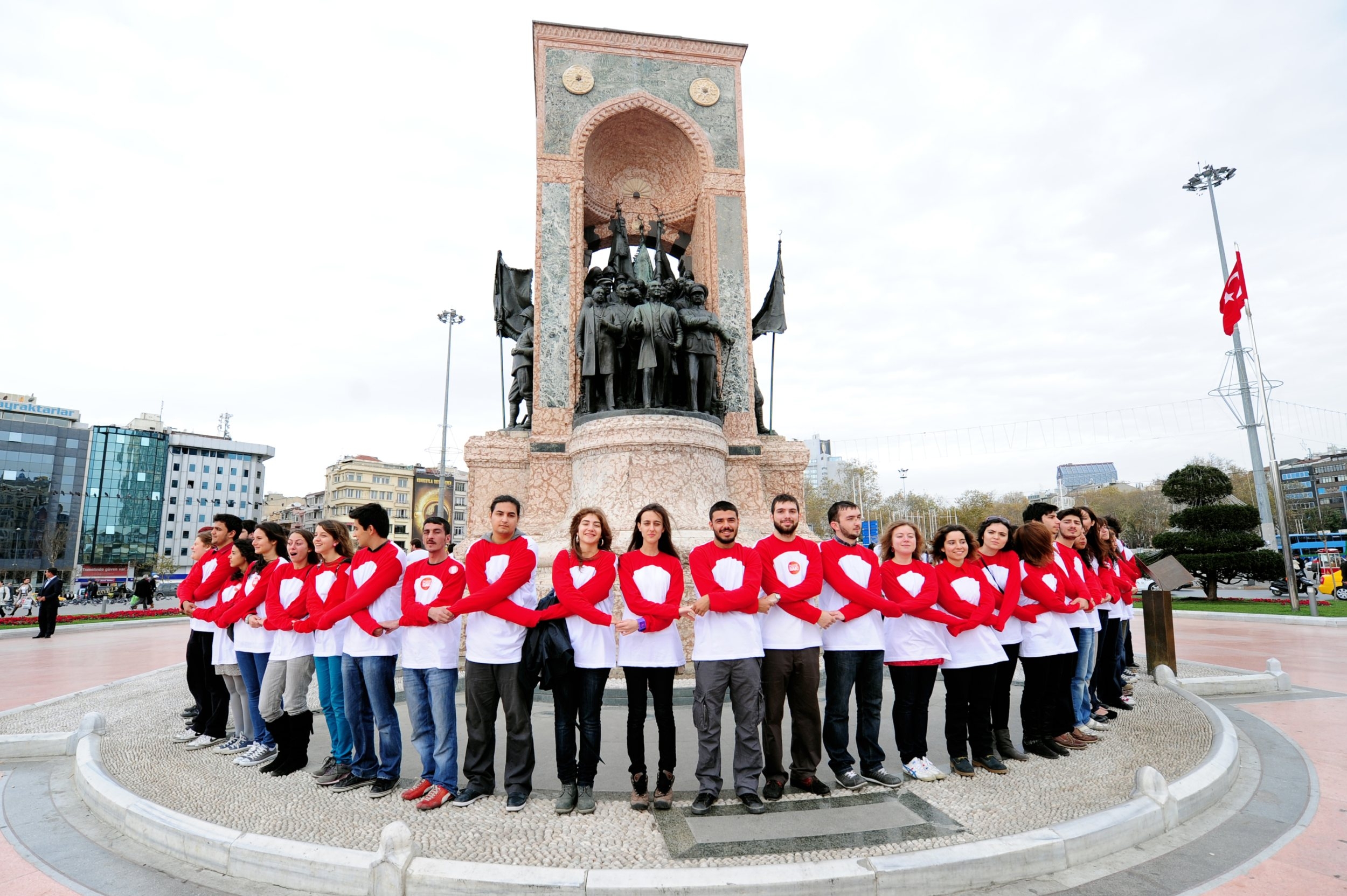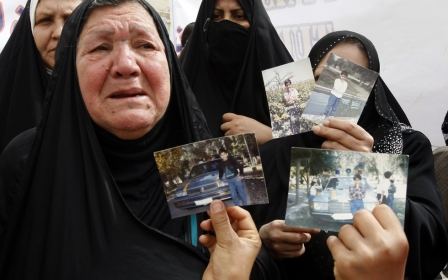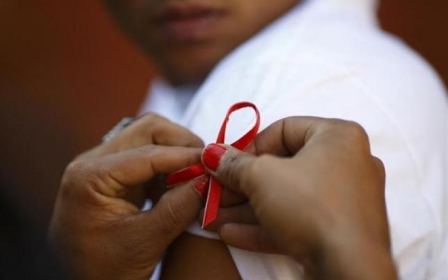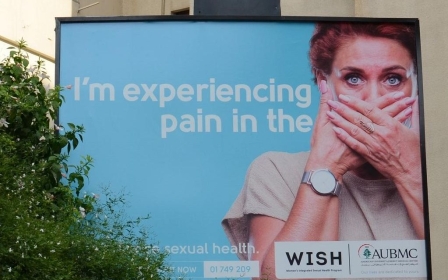New HIV cases in Turkey skyrocket in last decade

The number of people who have tested positive for HIV increased sixfold in the last ten years in Turkey, according to statistics released by the Ministry of Health this week.
As of November, the ministry had records of some 22,345 HIV-positive people. In a country with a population of 80 million people, the number represents a mere 0.0027 percent of the population - but stands in sharp contrast to the 3,671 cases recorded in 2009.
The number of new recorded cases of Aids - the latter stage of HIV if left untreated - meanwhile grew by nearly 250 percent during the same timeframe, from 771 in 2009 to 1,864 this year.
Some medical experts have claimed that Turkey may have the highest increased rate of new HIV cases in the world.
Necla Tulek, a clinic microbiologist, was quoted by CNN Turk as saying experts believed at least 25,000 were infected with HIV in the country - although other estimates put the number far higher.
New MEE newsletter: Jerusalem Dispatch
Sign up to get the latest insights and analysis on Israel-Palestine, alongside Turkey Unpacked and other MEE newsletters
“We expect that this number will increase towards the end of this year. While HIV is on the decline around the world, it is on the rise in Turkey along with Eastern Europe and the Middle East,” she said.
For Canberk Noyan Harmanci from the Istanbul-based Positive Living Association, an NGO whose mission is to inform the public about HIV, one of the fundamental reasons for the increase in new HIV cases is likely due to a lack of education on the matter.
Harmanci told Middle East Eye that some 40 million Turkish citizens - nearly all the sexually active people in the country - have never received sexual health education, including on sexually transmitted diseases and infections and how to practice safe sex.
“We don’t have [the data] on the probability or frequency of encountering sexually transmitted diseases, but it seems pretty usual within this framework to see an increase in the frequency of STDs - not only HIV, but something like syphilis, which is almost eradicated [in the world],” he said.
Thanks to medical advances, HIV patients can maintain an undetectable and untransmissible viral load with treatment, and prevent HIV from developing into Aids. While HIV is no longer a death sentence, as used to be the case in the 1980s and 1990s, low STD-testing rates mean many people won't access treatment and risk the further spread of the disease.
Cultural factors play a major role in the problem. Talking about sex remains largely taboo in Turkish society, and HIV remains largely associated in public consciousness with homosexual relations or sex work.
'We have to increase awareness, beginning within educational institutions'
- Serhat Unal, Hacettepe University
Meanwhile, a poll conducted by DTK International in 2016 saw 45 percent of sexually active respondents say they had never used condoms, while one third also said they were ashamed of purchasing condoms in stores.
“[As a society], our presumption that we experience sex only within the confines of marriage with total fidelity isn’t consistent with reality,” Harmanci said - adding that this assumption left many people, particularly married women, "even more defenceless".
In recent years, the Turkish Health Ministry has taken some steps, such as increasing awareness through formal education channels. The ministry already provides free testing and healthcare for HIV and Aids patients who are covered by general health insurance, a universal public healthcare system.
But experts say there are more steps that Turkish government and civil society must undertake to combat the epidemic. Hacettepe University Professor Dr Serhat Unal told Milliyet newspaper that the number of medical centres providing anonymous and free STD tests must increase.
“We have to increase awareness, beginning within educational institutions,” he said.
Harmanci agreed, adding that schools, traditional media outlets, social media and other avenues should be used to inform the Turkish public about sexual health. “Condoms must be easily available and free for key communities,” he said.
In a conference on HIV on Sunday, Deputy Turkish Health Minister Emine Alp Mese announced that the ministry has established an HIV/Aids advisory board and prepared a "nationwide HIV/Aids control programme for the 2019-2024 period" published in July.
Activists say that even though the ministry’s HIV plan - prepared in consultation with NGOs and doctors from the public and private sectors - is reasonable, it would still require frequent updates and sound implementation.
“Most importantly, it should go into action," Harmanci said. "And funds needed for these actions should be provided by national and international bodies.”
This article is available in French on Middle East Eye French edition.
Middle East Eye delivers independent and unrivalled coverage and analysis of the Middle East, North Africa and beyond. To learn more about republishing this content and the associated fees, please fill out this form. More about MEE can be found here.




